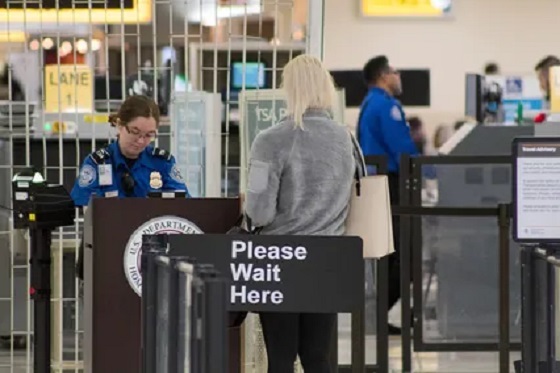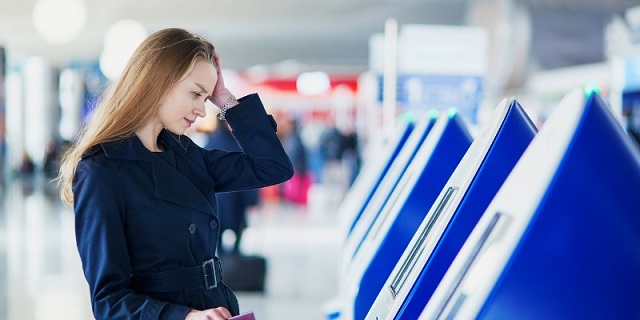Travel
I’m goin’ back to Boulder Hut

BOULDER HUT by Gerry Feehan
I asked the pilot where we were bound.
“Boulder Hut” he said. “Where’s that?” I queried. “Twelve minutes that way,” he said pointing west over Northstar Mountain.
There are no baths or showers at Boulder Hut. Clean-up after a day of strenuous backcountry skiing involves soaping up in a wood-fired sauna, then dumping a bucket of water over one’s head. To my surprise a fellow guest, fit naked – and female – offered to do the pouring. I reluctantly acquiesced. Thereafter, the absence of a proper shower seemed trivial and I decided to forego my complaint to management.
Management at this remote backcountry lodge consists of owners Mark and Sarah Yancey, whose infectious love of Boulder Hut – and the remote lifestyle it entails – is evident from the moment they greet you on the snow-packed heli-pad.
Over the years I’ve acquired all the accoutrements for ski-touring – and on occasion I’ve skinned up from our condo on the Kimberley, BC ski hill – but I had never before toured in the backcountry.
So I was curious when a helicopter touched down at the base of the ski hill on a sunny morning in January. A group of people, ski paraphernalia in tow, was preparing to board. I put down my coffee, stepped off the deck and wandered over. I asked the pilot where they were bound.
“Boulder Hut” he said.
“Where’s that?” I queried.
“Twelve minutes that way,” he said pointing west over Northstar Mountain.
As I ain’t gettin’ no younger, I determined to be on that chopper before the season ended. And so in mid-March I was soaring over our place, watching my wife Florence waving goodbye from our deck. I hoped it was not a permanent farewell.
Moments later we were up and over the Black Forest on the ski hill’s back side.
Then we were into the rugged roadless world of the Purcell Range. We hugged a ridge of wintry peaks, summited Boulder Pass and descended into a broad forested valley. A tiny dot far below soon resolved into Boulder Hut.
After a welcoming lunch and safety briefing we strapped on skins and started our first ascent through the thick forest of old-growth spruce that provides Boulder’s gorgeous back-drop. The conditions were fabulous; a storm had just blown through. Fresh powder and sunny, bluebird conditions greeted us.
Drinking water is drawn directly from a small creek that flows year-round.
Every winter the media warns of avalanche danger in the backcountry. At Boulder Hut safety is paramount. With Mark and alpine guide Brent Peters constantly checking conditions – and leading the way through dicey areas – we felt safe and comfortable. When there was any hint of risk they dug a snow profile to check for stability and to ensure some rogue slab wouldn’t ruin our day.
Boulder Hut is remote, quaint and rustic – guests share an open sleeping cabin. If you forget earplugs (and sleeping pills), your repose may be ruined; exhausted snoring skiers make a hell of a racket.
In the evening guests are responsible for stoking the wood-burning stove. Failure to maintain the fire means for a long cold shivering night. As the only rookie, I was utterly exhausted at the end of each day and slept like a baby – with an assist from earplugs (and a little blue friend).
Drinking water is drawn directly from a small creek that flows year-round. The same stream supplies power via a small hydroelectric plant.
Boulder has no laundry facilities. By the fourth night my ski socks, hanging over the bunk to dry, had taken on a crisp flavourful bouquet – or so my fellow guests noted (I was obliviously comatose).
Boulder’s bathrooms are located al fresco; open A-frame jobbies where one can enjoy a panoramic view of the Purcell Mountains whilst engaging in one’s morning constitutional. A sign planted in the snow announces whether the privy is occupied or available.
At Boulder Hut there is no cellphone coverage or internet. And guests are (gasp) expected to help with the dishes after dinner.
I’ve been to five-star ski lodges where a cat whisks you to the top of the mountain for each run. At Boulder Hut every turn is earned. Mark calculated that we climbed 14,000 feet (4300 meters) during our stay.
Sound like a miserable experience?
I had the time of my life. Mark, Sarah, their kids Grace and Alden, mascot Rosie the Great Pyrenees and my seven fascinating fellow guests made for a fabulous, unique experience.
I’m going back to Boulder this winter – and taking along a few buddies – all rookies.
Now if only I can arrange for a reprise of that fit lady with the water bucket.
Gerry Feehan QC practised law in Red Deer for 27 years before starting his second life as a freelance travel writer and photographer. He says that, while being a lawyer is more remunerative than travel writing, it isn’t nearly as much fun. When not on the road, Gerry and his wife Florence live in Red Deer and Kimberley, BC. Todayville is proud to work with Gerry to re-publish some of his most compelling stories from his vast catalogue developed over more than a decade of travel.

Gerry Feehan
Click to read an excellent story about the Turks and Caicos.
International
No more shoes off: Trump ends TSA’s decades-old rule

 MxM News
MxM News
Quick Hit:
The Trump administration is phasing out one of the most despised airport security policies in America: the requirement to remove shoes during TSA screening.
Key Details:
- Passengers will no longer be required to remove their shoes at airport security checkpoints in coming weeks.
- The change is rolling out at Baltimore, Fort Lauderdale, Cincinnati, Portland, Philadelphia, and Piedmont Triad airports.
- White House Press Secretary Karoline Leavitt confirmed the policy reversal on Tuesday morning.
Diving Deeper:
The Trump administration announced it is ending the much-loathed Transportation Security Administration rule requiring passengers to remove their shoes during security checks, a mandate that has frustrated Americans since its introduction nearly two decades ago.
The change is being implemented first at Baltimore/Washington International Airport, Fort Lauderdale International Airport, Cincinnati/Northern Kentucky International Airport, Portland International Airport, Philadelphia International Airport, and Piedmont Triad International Airport in North Carolina, according to CBS News. The policy will expand to additional airports nationwide in the coming weeks.
White House Press Secretary Karoline Leavitt shared the news on X, posting, “Big news from [the Department of Homeland Security]!” Tuesday morning. A TSA spokesman told The New York Times that “TSA and DHS are always exploring new and innovative ways to enhance the passenger experience and our strong security posture,” suggesting the policy change is part of broader improvements under President Trump’s leadership.
The policy to remove shoes was first instituted in 2006, stemming from the December 2001 attempt by Richard Reid, known as the “shoe bomber,” to ignite explosives hidden in his shoes on a flight from Paris to Miami. Reid was sentenced to life in prison after pleading guilty to terrorism charges, but critics have argued the policy punishes every American traveler for the actions of one terrorist nearly 25 years ago.
Before the update, travelers in the TSA PreCheck program were already exempt from removing shoes, belts, and jackets. Now, under President Trump’s directive to reduce pointless regulatory burdens, the policy is being eliminated for all travelers.
Business
Here’s why your plane ticket is so expensive

From the Fraser Institute
By Alex Whalen and Jake Fuss
While the strike by WestJet mechanics lasted only a few days, many Canadian air travellers faced long delays and cancelled flights. More broadly, according to the Canadian Transportation Agency, customer complaints have hit an all-time high.
Yet many dissatisfied travellers likely don’t realize that Ottawa heavily contributes to their frustrations. Let’s look at the various ways federal policies and laws make air travel worse in Canada.
First, federal laws insulate Canada’s airlines from competition. Foreign airlines are subject to highly restrictive “cabotage” laws which, for example, dictate that foreign airlines cannot operate routes between Canadian cities. At the same time, foreign investors are forbidden from owning more than 49 per cent of Canadian airlines. By restricting international participation in the Canadian air travel market, these laws both deprive Canadian consumers of choice and insulate incumbent airlines from competition. When consumers have more choice, incumbents have a greater incentive to improve performance to keep pace with their competitors.
Second, a wide array of taxes and fees heavily influence the cost of airline tickets in Canada. Airport improvement fees, for example, average $32.20 per departing passenger at airports in Canada’s 10 largest markets. In contrast, airport improvement fees in the United States cannot exceed $4.50. And last year the Trudeau government increased the “air travellers security charge” by 32.85 per cent—this fee, which now ranges from $9.94 to $34.82 per flight, is higher in Canada than the U.S. across all flight categories. On the tax front, in addition to fuel taxes including the federal carbon tax, the federal excise tax on unleaded aviation gasoline in Canada is 10 cents per litre compared to 6.9 cents per litre in the U.S. And the U.S., unlike Canada, does not apply sales taxes to aviation fuel.
Third, air travel is a heavily regulated sector. Federal legislation generates thousands of provisions airlines must follow to operate legally in Canada. Of course, some regulation is necessary to ensure passenger safety, but each regulation adds administrative and compliance costs, which ultimately affect ticket prices. To lower the cost of air travel, the federal government should reduce the regulatory burden while maintaining safety standards.
Lastly, the ownership model of Canada’s airports results in a yearly transfer of rent to the federal government. The federal government used to own Canada’s national system of airports until they were transferred to private not-for-profit corporations in the early 1990s. However, these airports must still pay rent to the federal government—nearly half a billion dollars annually, according to the Canada Airports Council. As with the other examples listed above, these costs are ultimately passed on to consumers in the form of higher ticket prices.
While a precise estimate is difficult to obtain, various government policies, taxes and fees comprise a large share of the cost of each airline ticket sold in Canada. With complaints from travellers at all-time highs, the federal government should reduce the regulatory burden, increase competition, and lower fees and taxes. Policy reform for air travel in Canada is long overdue.
Authors:
-

 Opinion1 day ago
Opinion1 day agoPreston Manning: Three Wise Men from the East, Again
-

 Uncategorized2 days ago
Uncategorized2 days agoCNN’s Shock Climate Polling Data Reinforces Trump’s Energy Agenda
-

 Addictions1 day ago
Addictions1 day agoWhy B.C.’s new witnessed dosing guidelines are built to fail
-

 Energy21 hours ago
Energy21 hours agoActivists using the courts in attempt to hijack energy policy
-

 Business1 day ago
Business1 day agoCarney Liberals quietly award Pfizer, Moderna nearly $400 million for new COVID shot contracts
-

 Business1 day ago
Business1 day agoMark Carney’s Fiscal Fantasy Will Bankrupt Canada
-

 COVID-191 day ago
COVID-191 day agoTrump DOJ dismisses charges against doctor who issued fake COVID passports
-

 Alberta1 day ago
Alberta1 day agoTemporary Alberta grid limit unlikely to dampen data centre investment, analyst says




















